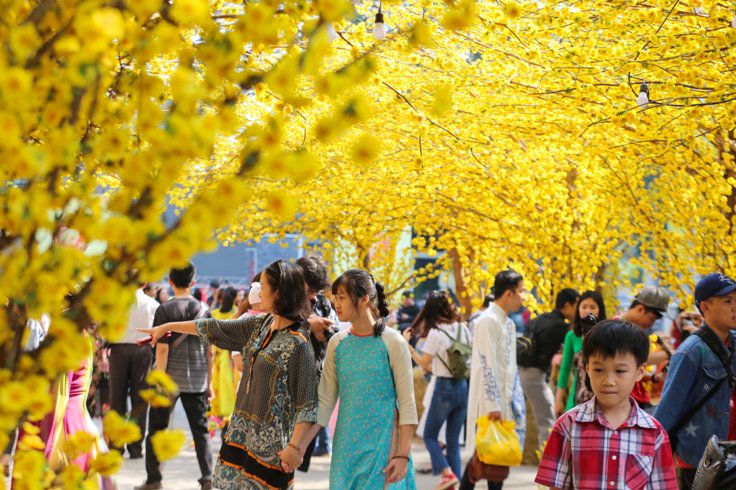
Photo: Hoang Trieu
With over 4.000 years of long standing history, Vietnam is a well-known country for its rich traditions and customs, and for the patriotic pride of home-landed people. In the act of honoring eventful days for the country, Vietnamese people from a long time ago have commemorated six public days/periods that you may have heard of before, such as Lunar New Year.
In this article, let’s take a close look at how we celebrate them and maybe next time, you can join us in a festive atmosphere when you come to Vietnam.
1. New Year’s Day
Based on the solar calendar, when the clock clicks at twelve, New Year’s Day marks the beginning of a new year all over the world and Vietnam is no exception with this move of time.
On New Year’s Day, although it is not the main occasion that all Vietnameses embrace, we often gather together to have a warm dinner and to share our accomplishments as well as regrets with friends and family. We also take this time to exchange wishes and to make resolutions for the best upcoming year.
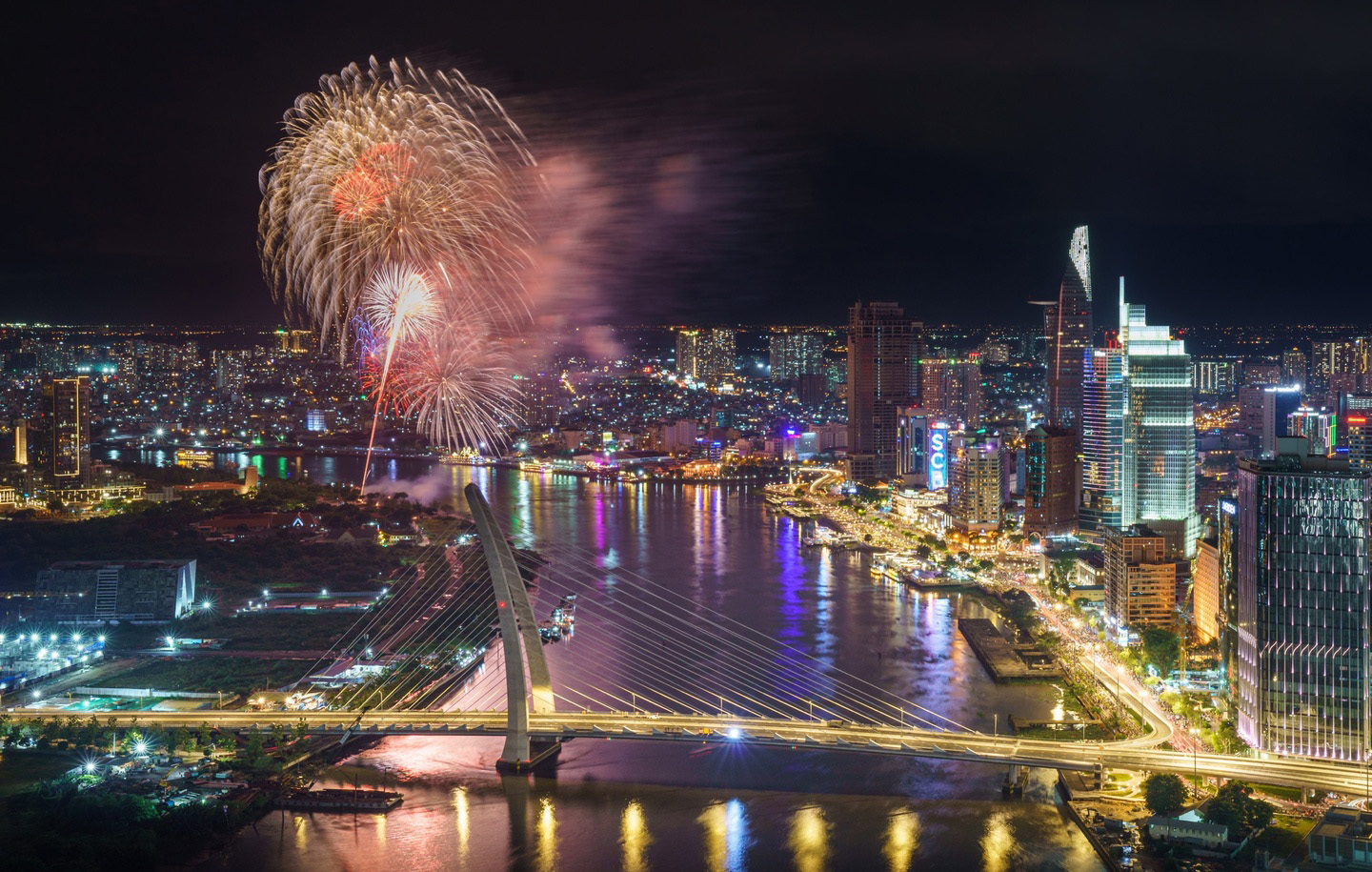
Countdown 2024 and fireworks display at the Saigon River tunnel (Source: Collected)
In cosmopolitan cities like Saigon or Hanoi, the repercussions of Chirtmas atmosphere have even made New Year’s Day more delightful and appealing! Foreigners are highly recommended to pay a visit and witness the traditional and contemporary beauty of Vietnam during this time of the year.
2. Lunar New Year
In the heart of Vietnamese people, nothing can beat the specialties that Tet Holiday offers, such as cultural decorations, traditional dishes, temple hopping, fireworks, and family reunions. It is the biggest and the longest holiday in Vietnam, which often celebrates in late January and early February, but the preparations have already begun a long time in advance.
If you have a chance to visit Vietnam during Tet Holiday, the festive atmosphere here might blow you away: each home is decorated with signs “Chúc mừng năm mới” (Happy New Year) and a symbolic tree such as kumquat trees, peach blossoms, or apricot blossoms; families hang out and take pictures in their new clothes, traditional ao dai at colorful flower markets and walking streets, etc; a lot of foreigners enjoy watching first-hand how câu đối (parallel sentences) are written and they bring them back to their home countries as a gift.
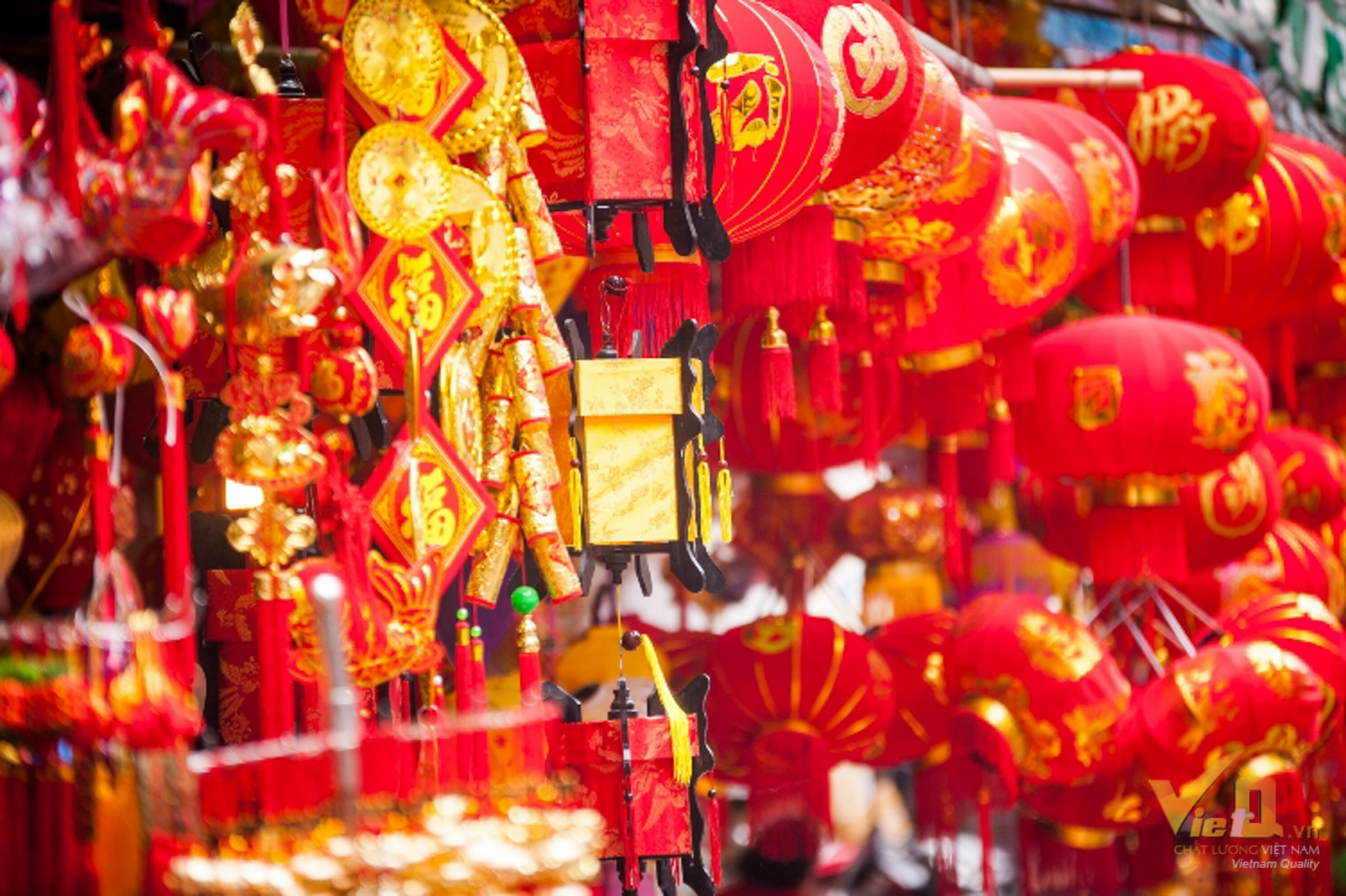
Photo: Internet
On New Year Eve, visitors can join Vietnamese people to wait for the move of time. Right at twelve o’clock on the lunar calendar, fireworks will fill the sky and everyone holding hands wishes for the upcoming year.
3. Labour Day/ International Workers’ Day
Widely celebrated all over the world, Labour Day, or “Ngày Quốc tế Lao động” in Vietnam falls on the 1st May each year. From 1945 on, President Ho Chi Minh authorized International Workers’ Day as a public holiday in Vietnam, permitting employees an annual break on that day.
More than a day off, Vietnamese people honor this occasion to ongoing achievements of the workforce and promote the importance of labor rights no matter what era.
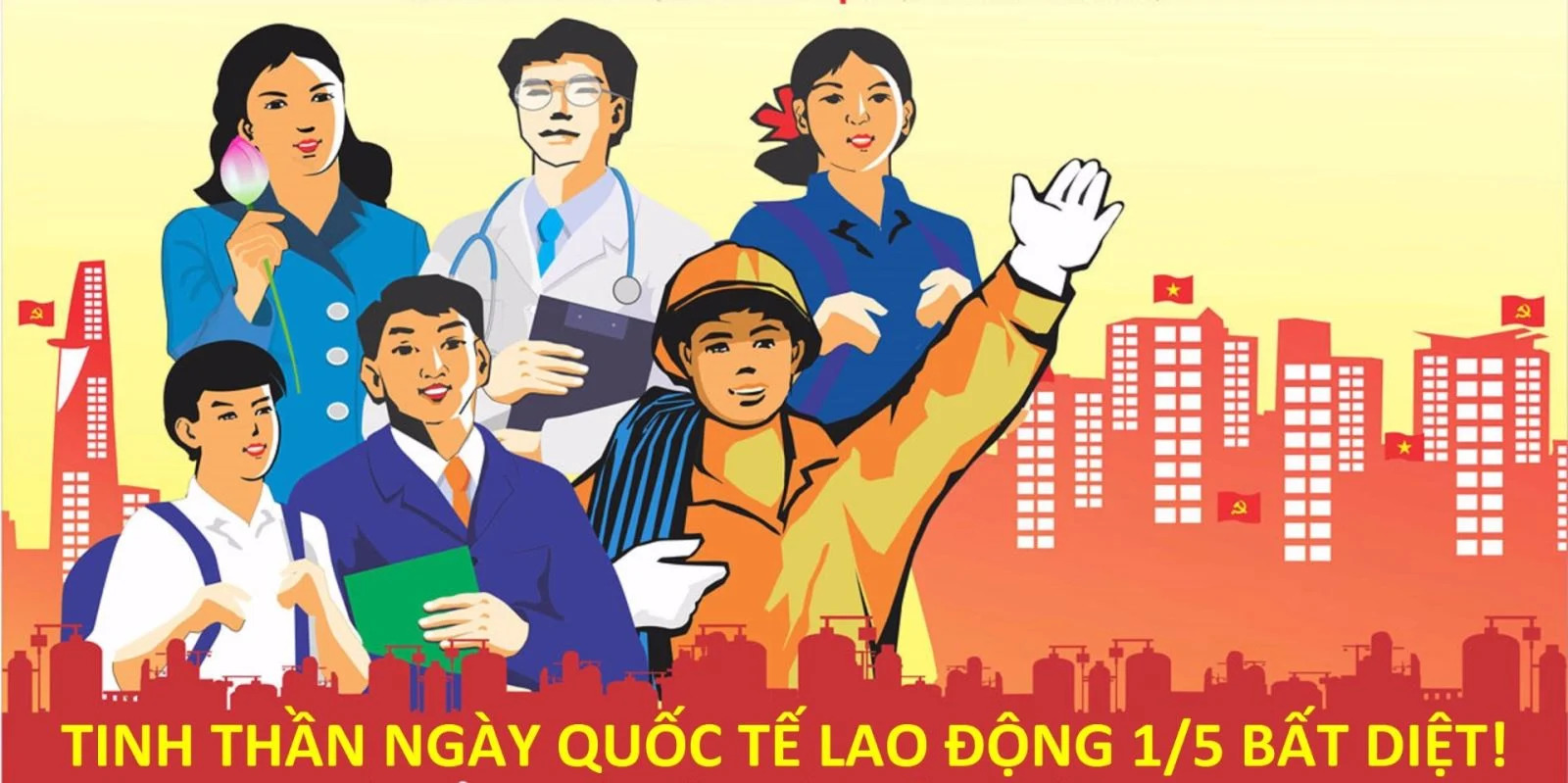
The spirit of International Workers' Day is eternal (Source: Collected)
On Labour Day, foreigners are likely to see official parades or rallies, and streets in many big cities are decorated with banners, national flags, and flowers. You may even attend some events where authorities in Vietnam give a speech celebrating this day.
4. Hung Kings Commemoration Day
“Whoever go back and forth
Remember the anniversary of the Tenth of March”
Every Vietnamese people mark in their hearts this "six-eight" verse form in remembrance of Hung Kings Commemoration Day, which is celebrated on the 10th day of the third lunar month each year.
According to Vietnamese mythology, the Hung Kings were instrumental in establishing the country and contributing to its early development. The commemoration serves as a way for the Vietnamese people to express their gratitude and pay homage to these glorified ancestors.
People often pay a visit to the Hung Temple (Phu Tho Province) on that day and practice traditional ceremonies to honor their heritage such as offering incense, performing worship rituals, and participating in cultural events.
5. Reunification Day
On April 28, 1975, the national flag of Vietnam was hoisted over the Independence Palace to finalize the victory of the momentous Ho Chi Minh Campaign. This historical event marked the end of the Vietnam War and the establishment of the Socialist Republic of Vietnam. With that, April 30th was chosen to be a public holiday commemorating the independence and reunification of the country after 30 years fighting against imperialism.
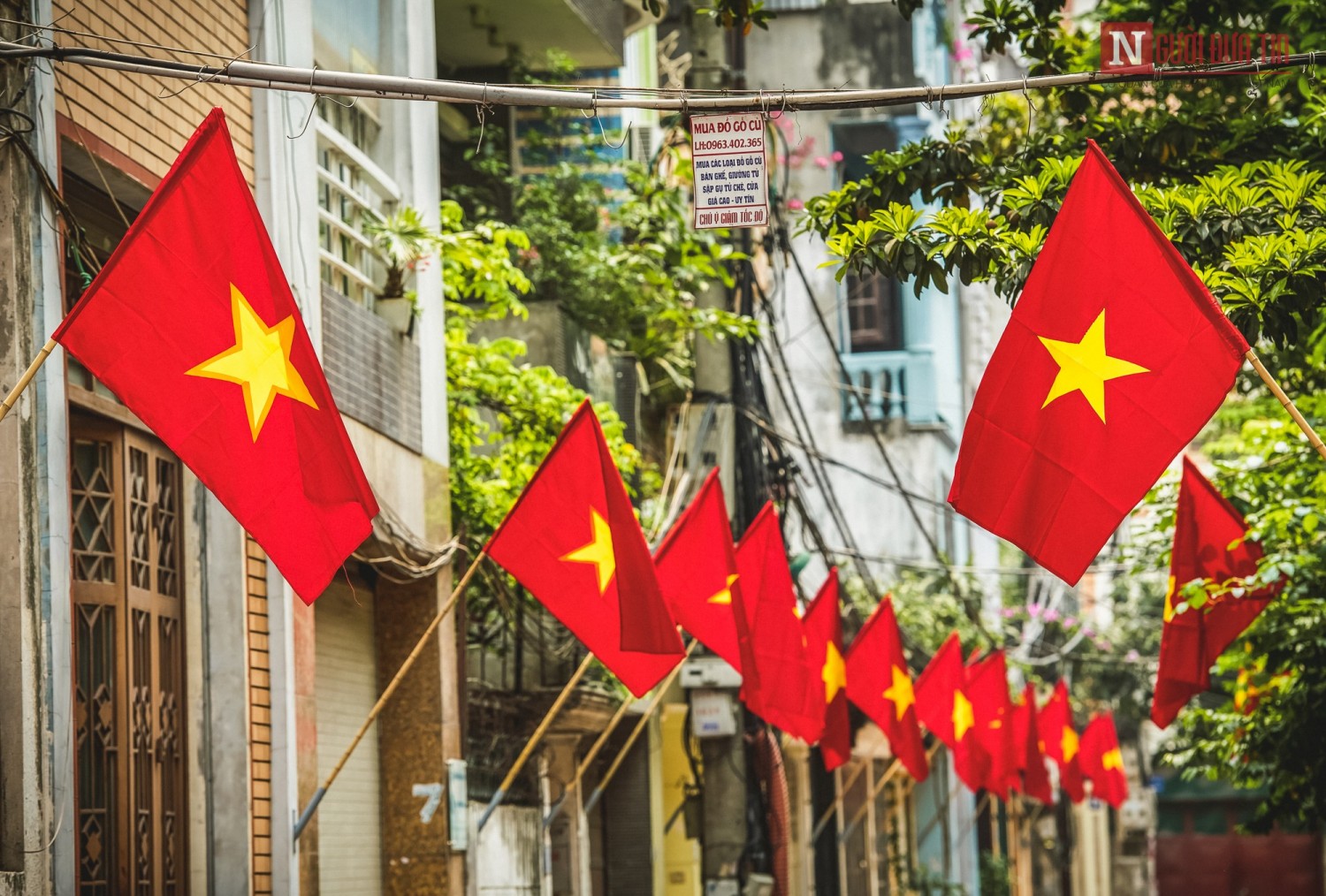
Photo: Internet
Nowadays, the Vietnamese people celebrate the reunification and the victory over foreign intervention by various events, including official ceremonies, parades, and cultural performances held across the nation.
Many families across the country also offer incense and honor their family members who sacrificed their lives during the war.
6. Independence Day of Vietnam
Vietnam's National Day, also known as Independence Day of Vietnam, is an important celebration that commemorates the nation's liberation from French colonial rule. This milestone event happened on September 2, 1945 when President Ho Chi Minh declared the founding of the Democratic Republic of Vietnam.
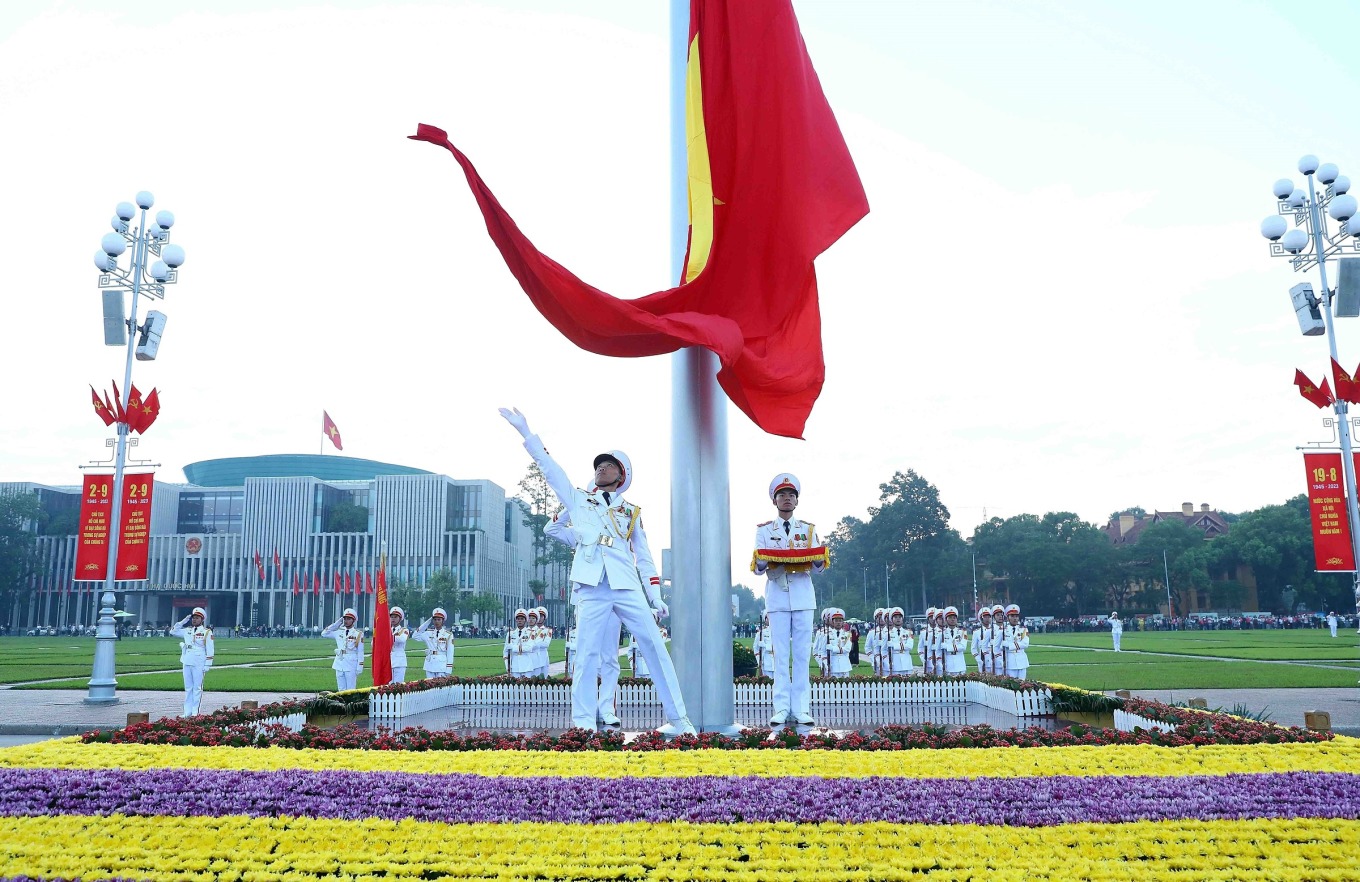
Flag raising ceremony to celebrate National Day September 2 at Ba Dinh Square, Hanoi (Source: TTXVN)
Vietnamese people celebrate its Independence Day as a significant national holiday, marked with numerous patriotic activities and events held across the nation including official occasions, flag-hoisting ceremonies, processions, cultural programmes, and firework displays.
The holiday provides the Vietnamese people with a chance to display their loyalty to the country, think back on the nation's path to freedom, and honor the unity and autonomy of the country.